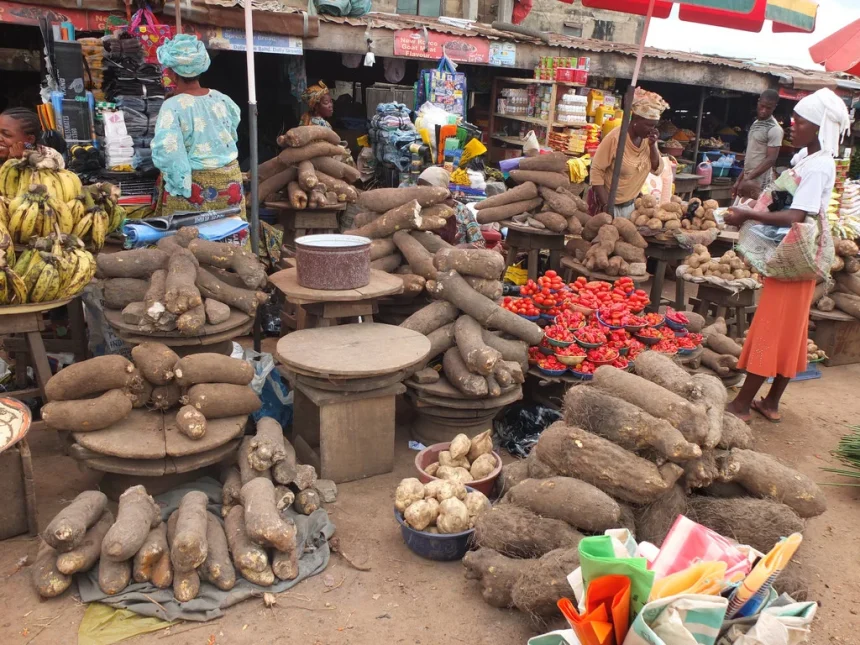Food inflation in Nigeria has surged to 39.16% in October 2024, up from 37.77% in September, marking a significant increase under the administration of President Bola Ahmed Tinubu. The new figures, released on Friday by the National Bureau of Statistics (NBS), indicate that food prices have continued to escalate, putting immense pressure on Nigerian households.
This latest rise in food inflation reflects a 7.64% increase compared to the same period in 2023 when the rate was 31.52%. The NBS attributed the year-on-year rise in food inflation to higher prices of essential food items, including guinea corn, rice, maize, yam, palm oil, vegetable oil, and beverages like Milo and Bournvita. These increases are primarily driven by supply chain disruptions, rising production costs, and inflationary pressures across various sectors.
On a month-on-month basis, food inflation also saw a 2.94% increase in October, up from 2.64% in September. The NBS pointed to significant price hikes in oil and fats, such as palm oil and vegetable oil, as well as in fish, meat, and cereals like bread and rice, as key contributors to this rise.
The data also showed that the average annual rate of food inflation for the twelve months ending October 2024 was 38.12%, marking an 11.79% increase from the previous year’s average of 26.33%.
This sharp rise in food prices comes amidst a broader inflationary trend in the country, with Nigeria’s headline inflation increasing to 33.88% in October 2024. As the cost of living continues to climb, millions of Nigerians are grappling with the financial strain of rising food costs, which are far outpacing income growth and eroding purchasing power across the nation.
The government’s handling of the economy, including the removal of fuel subsidies and the ongoing foreign exchange crisis, has contributed to the worsening inflation, leaving many Nigerians struggling to make ends meet.




